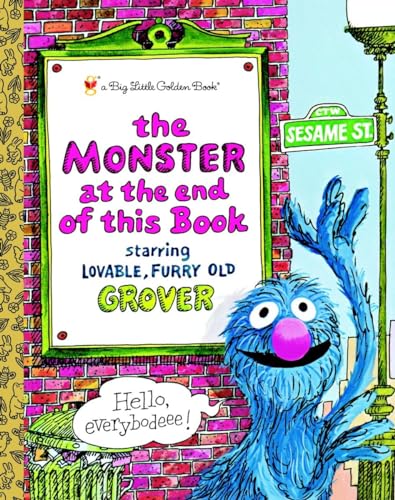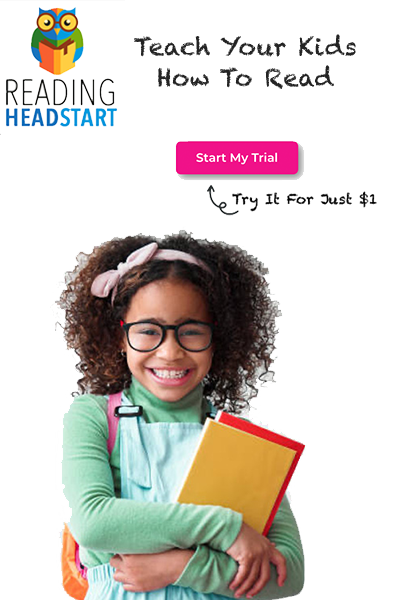Parents are often asked about the best ways to get their kids to read. The answer is simple, but not always easy: read with them! When a parent reads aloud in a coherent and expressive voice, it’s easier for children to understand what they’ve heard. It also creates a shared reading experience that can foster an emotional connection between parent and child—which in turn will make reading more enjoyable for both of them. Reading together has benefits well beyond just getting your child interested in books; it encourages communication skills, motor development, vocabulary growth, problem-solving abilities and much more. In short: when you read with your kids, you help create the next generation of readers!
Does reading to your child make a difference?
A study recently published in the Journal of Developmental and Behavioral Pediatrics found that parents who read to their kids have children with larger vocabulary skills than those who didn't have regular story time. Researchers studied 1,300 families in which babies were 9 months old at the start of the study. The researchers assessed both parent-child interactions and infants’ vocabularies when the children were 2 years old. The parents who reported reading to their kids more than once a week scored higher on vocabulary tests for their children than those who read less often. And the results weren't just limited to books! Parents also saw benefits if they used other forms of storytelling, like telling rhymes or singing songs.
Is there a right way to read with my child?
You’ve probably heard that you should always read picture books together, but that doesn’t have to be the case. Reading early readers or non-fiction is equally beneficial for kids at different stages of development, and it provides good practice for developing fluency skills. Whichever types of books you choose to read with your child, try to take your time and model proper pronunciation for words that might be challenging. It’s great practice for them to sound out new sounds in the text or even create their own simple sentences using new words they just learned!
The benefits of reading to your children
Benefits of reading to your kids are numerous, and can include better vocabulary skills, improved concentration, greater self-expression and a deeper emotional connection. For parents, it’s a special bonding time to share their love for books and reading with the children they love. It’s also a great way to introduce early literacy concepts that are part of school standards.
Don't wait until your child can read on their own—read with them now! You both will benefit greatly, and there's no better time than the present to start sharing books together. Read, laugh, bond…and most importantly, enjoy reading with your child.
Can I read non-fiction to my child?
Yes! Non-fiction books are a wonderful way to add to your child’s growing knowledge, and it helps develop important reading comprehension skills. When an adult reads from a non-fiction book, they should take special care to make sure what is being read is appropriate for the level of the child. The adult should also encourage children to ask questions about what they’re reading, and even engage them in a discussion after the book has been read. Remember that non-fiction books are not just reference books or encyclopedias! The best non-fiction titles for young readers have a strong narrative thread, vivid illustrations and clear photos.
Try this quick experiment with your child the next time you read a non-fiction book together: ask them to summarize what they’ve read or tell you about their favorite part of the book. Their answer should be well-thought out enough that it shows they understood the text. Evaluate whether or not your child understood the text by asking them to answer questions about what they read. If their answers don’t align with what was written, try reading it again as a group.
How long should I read to my child each day?
The American Academy of Pediatrics (AAP) recommends that parents read to their children every day until they are 5 years old. To make the most out of reading time, try to set aside about twenty minutes each day for you and your child to enjoy books together. The time spent reading will have a huge impact on your child’s knowledge, vocabulary skills and even empathy levels. But make sure you keep books accessible for children at home, too! If your kids can see their favorite book sitting on the kitchen counter, they might be more likely to ask to read it together before breakfast or during snack time. Keep books in your child’s bedroom, backpack and even on the backseat of your car to make sure you always have some engaging time on hand.
The importance of early literacy
Reading to your child doesn’t have to be a chore or a time for you to get caught up on emails or the latest news. Parents often get so busy with work and other demands that they might not set aside time to read together at night. But it’s important for parents to take control of reading by setting aside quality time each day to read with their child. It’s how children develop a strong foundation for school and make the most of what they learn once they enter preschool or kindergarten.
It's also important for parents to model good reading behavior, which includes rereading favorite books, taking an interest in what their child’s reading and asking questions about the content. When you model good reading behavior, it encourages your kids to adopt them as well. Don’t be afraid to read aloud books that are beyond your child’s reading level—books with hard words, new vocabulary and pictures are all great ways to engage children in the text.
When you read aloud with your child, it gives them a chance to hear literature that is age-appropriate and engaging. Reading together also encourages parents and kids to take an interest in books for different purposes. Choose picture books for younger children or chapter books for older kids to encourage them to understand the power of literacy.
It’s easy to set up a reading area at home that can be fit into even the tiniest apartment. Place pillows on the floor next to your child’s bed, or create a reading corner in their room with bookshelves full of age-appropriate books.
As long as you expose your child to reading, they’ll be more likely to become avid readers themselves. The key is to set aside quality time each day and make a habit out of reading together. If it’s a priority for both you and your child, their literacy skills will flourish and so will their chances of succeeding in school.
What age should a child be a free reader?
Though the AAP recommends parents read to their children until they are 5, there is no age limit when it comes to reading. A child will become a free reader once they can read books on their own and find pleasure in picking up a book independently. However, keep reading together for as long as your kids want you to. Kids love hearing books read aloud, and they’ll be excited to have you read their favorite books again and again.
The age by which kids learn to read all by themselves varies. And while some start at the age of 4 others might get the hang of it at around 7 years old. So don't stress your child into reading on their own.
Reading and the benefits at school
Reading with your child can have a huge impact on their education. Not only does reading together help strengthen vocabulary skills, but it also gives kids access to better books in schools. Research shows that students who are well-read are more likely to move ahead in school and perform better on standardized tests.
As children become proficient readers they are able to work through increasingly complex texts. And when they can read and understand books at their reading level, they’ll do better in school because the material won’t be too easy or too difficult.
If your child is struggling with reading comprehension, it could be a sign that they don’t have the foundational skills to learn how to read. If that’s the case, it’s important to let your child know that learning to read is a skill you can both work on.
Don’t be afraid of choosing books at an age-appropriate level above your child’s reading ability—in fact, it will help them build confidence as they become more familiar with the text.
Takeaways
The best way to prepare your child for school is to read with them from a young age. By reading with your kids often, you’ll help develop their vocabulary and fluency skills. And by choosing preschool-level books that are appropriate for your child, they’ll be more likely to understand the text on their own when they head to kindergarten.
If your child is struggling to learn how to read, don’t panic—instead, make reading together a priority. By reading with them every day you’ll help your child practice their phonics and vocabulary skills as their confidence grows. Don’t be afraid of choosing books at an age-appropriate level above your child’s reading ability. When they become familiar with the text, it will help them build confidence as they begin to understand what they are reading all by themselves.
My own thoughts
My favorite book that I read with my kids is called “The Monster at the End of This Book”. We've read it over and over since they were little. The author, Jon Stone, is my favorite children's book author ever. If you're worried about your child not having time to exercise, I highly recommend reading this book (and others) in the car when you're waiting for soccer practice or something like that.
- Hardcover Book
- Stone, Jon (Author)
- English (Publication Language)
- 32 Pages - 05/11/2004 (Publication Date) - Golden Books (Publisher)
James Patterson said “If you want your children to be smart, read them fairy tales. If you want them to be more intelligent, read them more fairy tales.”
If we weren't reading books we were watching videos or playing games on phones and tablets. Those activities don't increase intelligence and they mess with the eyesight so it's highly recommended that kids not use electronic devices before they reach the age of 14.
It's not only important to read with your child, but it's also important to make sure they aren't spending too much time playing with electronic devices such as video games and cell phones. Electronic devices are addictive. They should be used in moderation, if at all. And reading books is a more beneficial activity than playing on electronic devices.
Tell me about your favorite books and the ones your kids absolutely loved. Just comment on this post and I am sure that other readers will love to hear your suggestions as well.









































